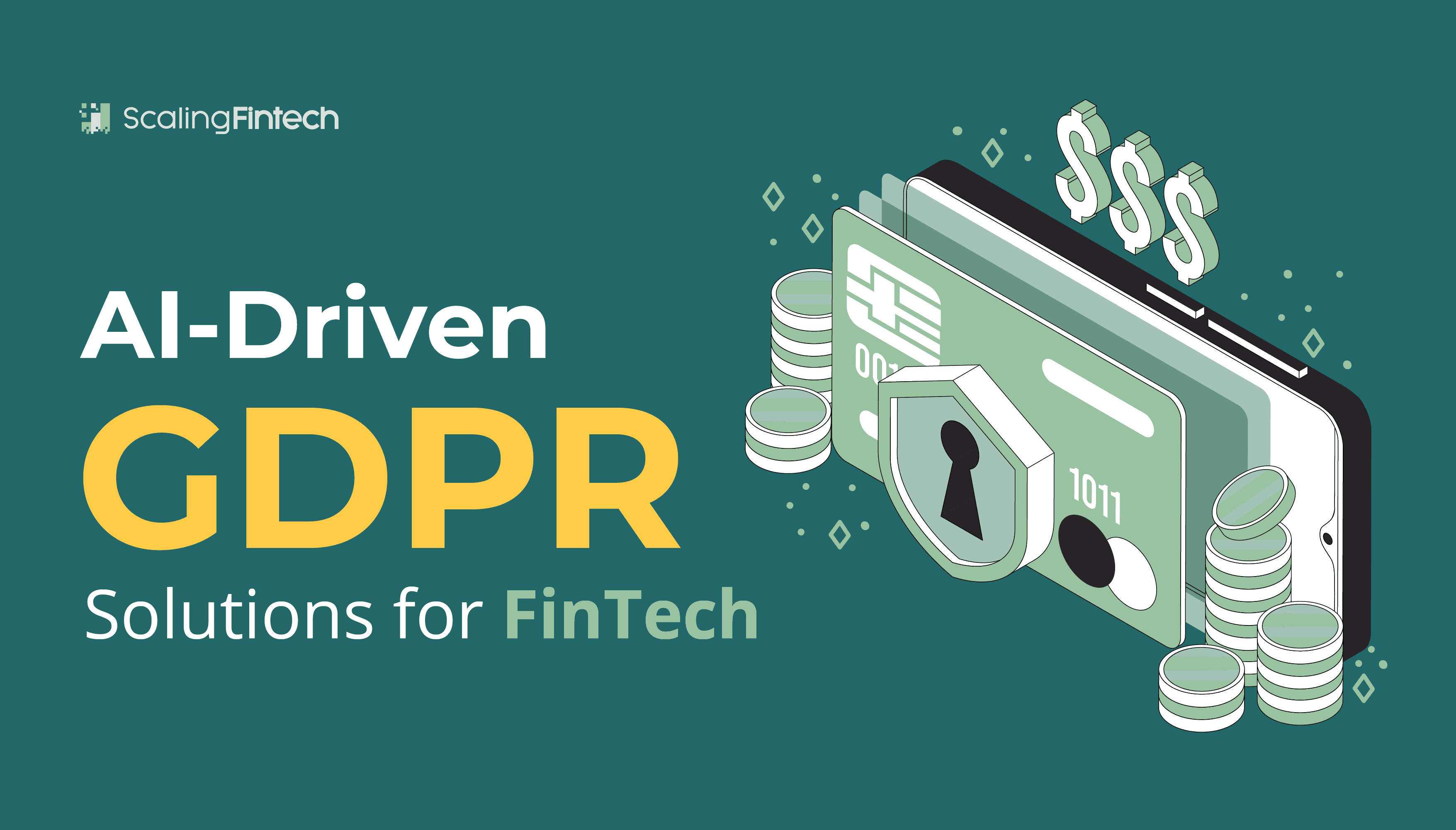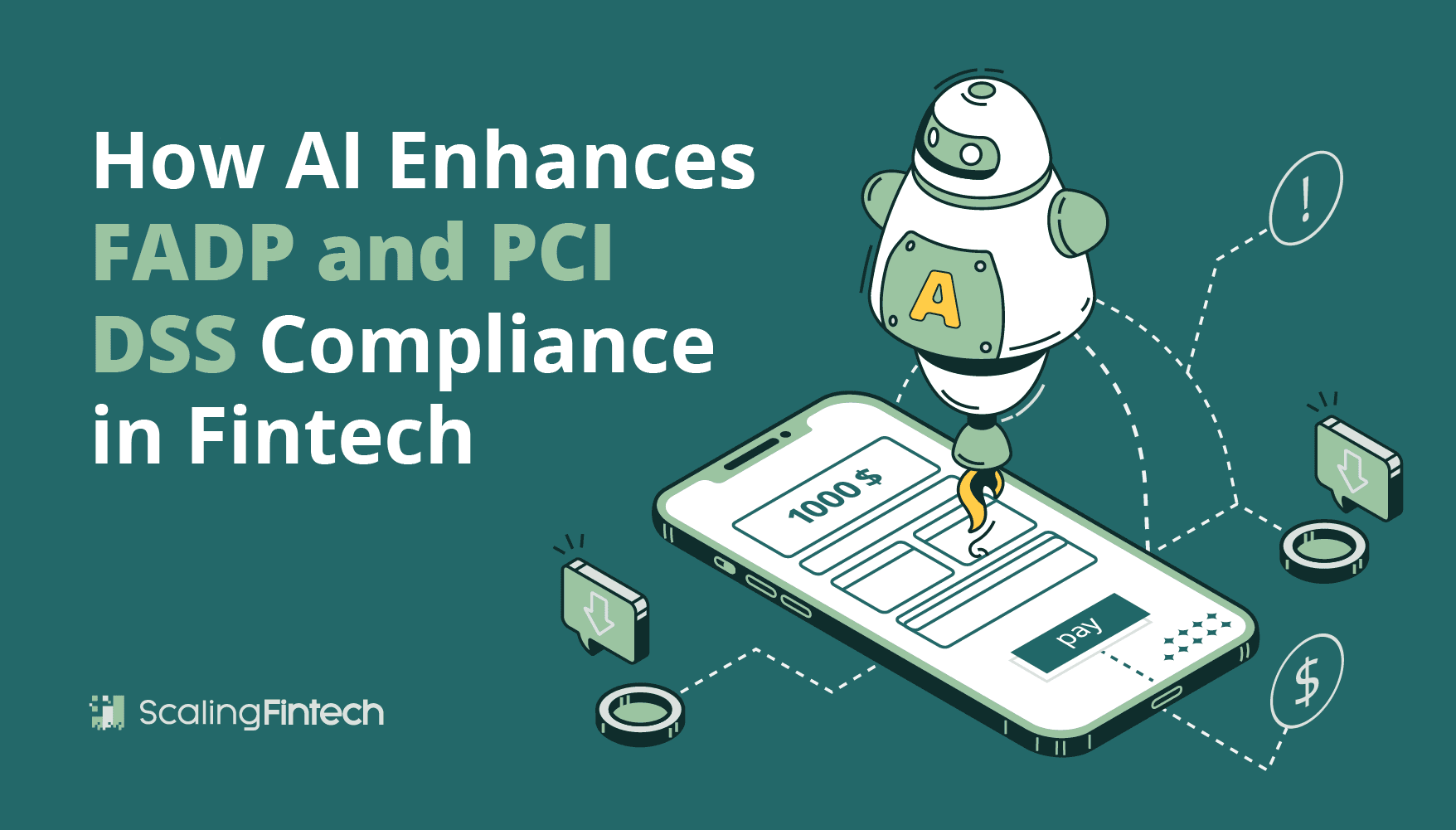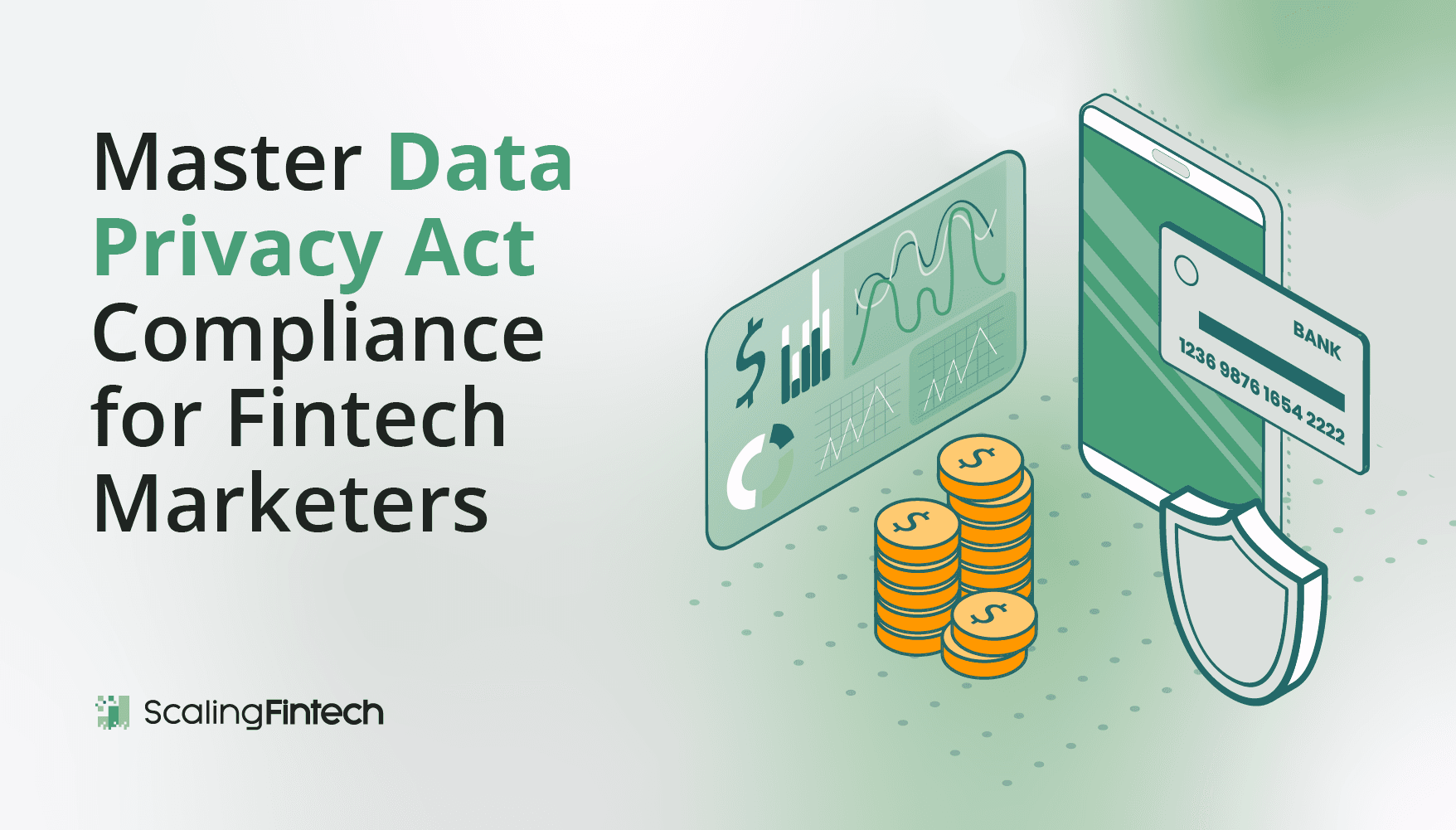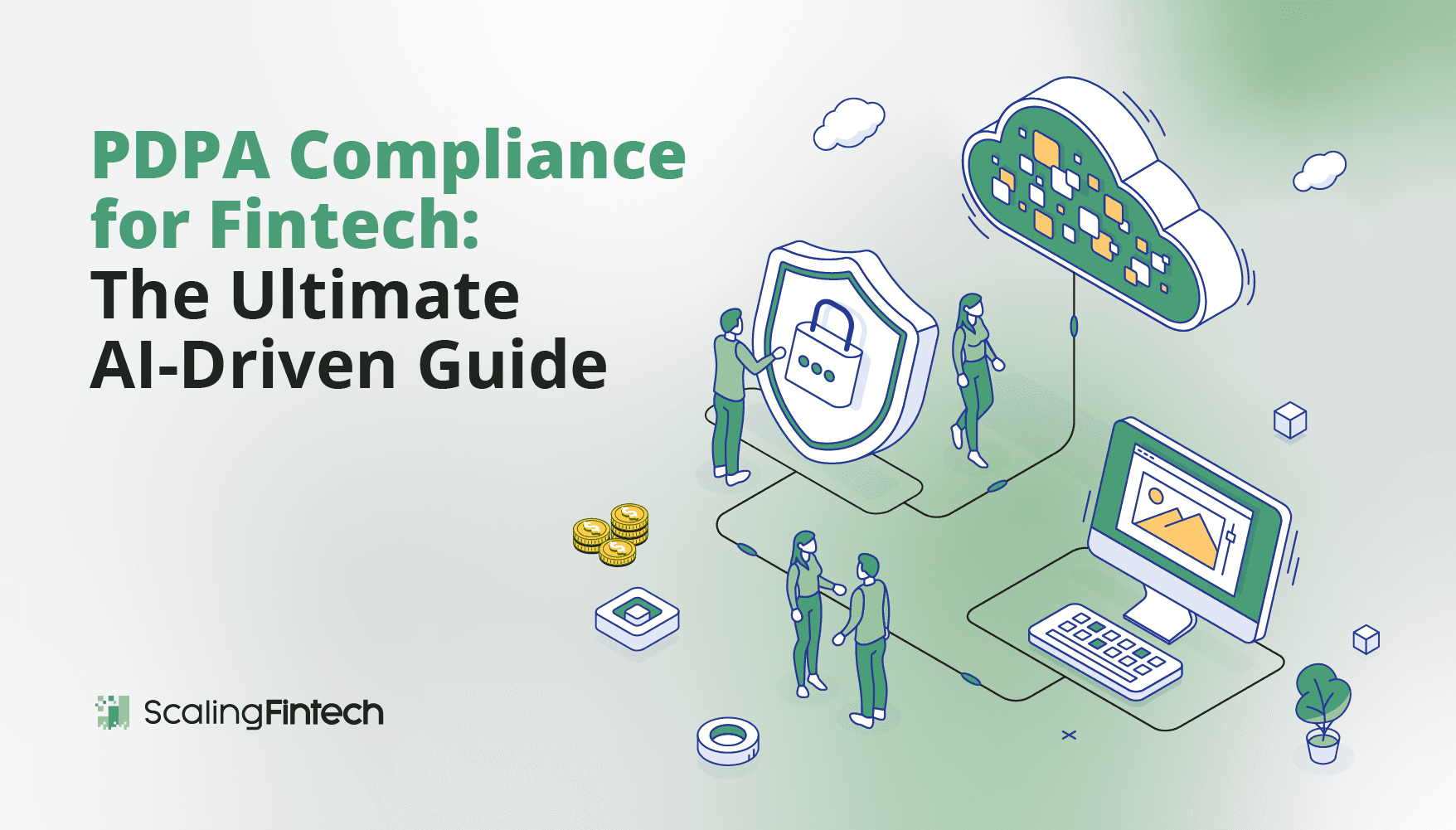Understanding the GDPR impact on fintech innovation is crucial for companies looking to navigate the complex landscape of data privacy in financial technology.
The General Data Protection Regulation (GDPR) sets strict data protection standards, posing unique challenges for fintech companies. Handling extensive, sensitive data from EU residents requires fintech firms to implement robust measures for data protection and privacy.
This guide explains the key GDPR requirements for fintech. It shows how AI tools can simplify compliance, automate data work, and improve transparency. Here’s how fintech companies can use AI to meet GDPR rules and build strong trust with customers.
Understanding GDPR and Its Impact on Fintech
GDPR is a comprehensive data privacy regulation that applies to any organization handling EU citizens’ data, regardless of its location.
For fintech, GDPR compliance is essential for regulatory adherence, fostering transparency, and building customer trust and loyalty. The GDPR requirements for fintech companies are particularly stringent due to the sensitive nature of financial data.
Key GDPR Requirements for Fintech
- Data Processing Transparency: Provide clear information on data collection, processing, and usage.
- Explicit Consent Management: Obtain user consent before data processing and allow users to modify or withdraw it.
- Data Security Measures: Implement data protection through encryption, access control, and secure storage.
- Breach Notification Protocols: Notify relevant authorities of data breaches within 72 hours.
- Individual Rights Protection: Respect user rights, including data access, erasure, and portability.
Given fintech’s role in managing large volumes of sensitive data, compliance with these principles is critical. AI and automation can streamline these processes, ensuring that GDPR’s core requirements are met efficiently while addressing the challenges of personal data processing in FinTech.
How AI Can Simplify GDPR Compliance in Fintech Marketing

AI-powered tools streamline GDPR compliance by automating data processes, enabling transparent data handling, and enhancing customer engagement. Here’s how AI can simplify compliance tasks and build a robust marketing framework.
1. AI-Boosted Data Management
AI systems automate data classification and tracking, reducing manual handling and improving accuracy. By managing data in real-time, AI can flag redundant or unnecessary data, aligning with GDPR’s data minimization principle and supporting fintech data protection regulations.
Example: A fintech firm uses AI to automatically identify redundant data for deletion, ensuring only necessary data is processed. This not only supports compliance but also reduces storage costs.
Actionable Tip: Use AI algorithms to categorize and flag sensitive data, helping prevent non-compliant data handling and maintaining GDPR compliance without disrupting operations.
2. AI-Powered Consent Management
AI-driven systems ensure continuous monitoring and updating of user consent across touchpoints, reducing the risk of consent violations. These tools enable immediate updates to customer preferences and generate compliance reports for real-time insights, addressing the need for robust consent mechanisms in fintech.
Example: An AI-powered consent management tool tracks user preferences in real-time, updating permissions across platforms and ensuring all customer interactions comply with GDPR consent standards.
Actionable Tip: Deploy an AI consent management tool to monitor user preferences instantly, reducing non-compliance risks, enhancing transparency, and improving user experience.
3. Automated Data Rights Management
GDPR grants users specific rights, such as data access, erasure, and portability. AI automates responses to these requests, simplifying data retrieval and organization for timely compliance. This is particularly important for managing data subject rights in fintech.
Example: An AI tool compiles a customer’s data history within minutes, significantly reducing response time and enhancing accuracy for GDPR data requests.
Actionable Tip: Implement an AI-driven data rights tool to quickly manage access and deletion requests. Regularly review AI outputs to ensure accuracy and maintain compliance.
Implementing AI-Powered Compliance Tools in Fintech Marketing

AI-powered tools simplify GDPR compliance, but effective implementation requires a strategic approach that considers operational needs and regulatory requirements. GDPR compliance tools for fintech can significantly streamline this process.
1. Choosing the Right AI Compliance Tool
When selecting an AI compliance tool, consider factors that meet both GDPR and marketing requirements:
- Integration Capabilities: Ensure the AI tool connects seamlessly with existing systems.
- Scalability: Choose a solution that grows with your data volume.
- Real-Time Monitoring: Opt for continuous compliance monitoring with instant alerts.
- Automated Documentation: Look for built-in reporting for compliance audit trails.
- Custom Rule Configuration: Ensure flexibility to adapt rules for specific data needs.
Actionable Tip: Conduct a pilot test with a small dataset before a full rollout to ensure compatibility and effectiveness within existing operations.
2. Training Marketing Teams on AI and GDPR
Equip marketing teams with the knowledge to handle AI tools and understand GDPR’s impact on daily tasks. Develop training modules that include scenarios such as handling data subject requests and managing consent. GDPR training for fintech employees is crucial for maintaining compliance.
Example: Host quarterly training where compliance officers demonstrate real-world GDPR scenarios in marketing settings, preparing teams for compliance risks in campaigns.
Actionable Tip: Use interactive workshops with GDPR case studies and tasks to build team confidence in handling GDPR-compliant data practices.
3. Developing Incident Response Protocols for GDPR Compliance
Establish clear incident response protocols with AI capabilities for rapid GDPR response. Automated AI systems can detect data breaches early, enabling rapid containment and risk mitigation. This is essential for meeting fintech data breach notification requirements.
Example: An AI monitoring tool detects a potential data breach, automatically notifying compliance officers and initiating a containment protocol.
Actionable Tip: Develop escalation protocols for AI-detected breaches. Ensure compliance teams understand follow-through steps and document each stage for audit readiness.
Best Practices for GDPR-Compliant Marketing in Fintech

Implementing GDPR-compliant marketing practices enhances compliance and builds customer trust. Here are strategies to drive success.
1. Data Collection and Storage
A transparent and purpose-driven data collection strategy is essential for GDPR compliance, emphasizing data minimization, encryption, and secure storage. This aligns with the principle of data minimization in financial services.
Example: A fintech firm automates retention schedules to delete user data once no longer needed, preventing unnecessary storage and ensuring compliance.
Actionable Tip: Regularly audit stored data, deleting outdated or irrelevant information. Use AI to track data retention schedules and automatically flag data for deletion.
2. Transparent Customer Engagement
GDPR encourages transparent communication about data usage, fostering trust in fintech relationships. By prioritizing data transparency, fintech companies can build stronger customer relationships and ensure compliance with privacy policies.
Example: During onboarding, an AI-powered chatbot explains data usage policies, ensuring customers fully understand consent implications.
Actionable Tip: Use chatbots to communicate data usage policies at each touchpoint, reinforcing trust and compliance.
3. Continuous Compliance Monitoring
Ongoing compliance monitoring ensures data handling stays aligned with GDPR and enables early detection of potential risks. AI systems can automate compliance audits, simplifying the process. This is particularly important for conducting regular GDPR audits for financial technology.
Example: An AI-based compliance monitoring tool scans for non-compliance and generates alerts, allowing teams to address issues proactively.
Actionable Tip: Schedule routine compliance checks to review audit trails, data access logs, and data flows. Use AI for continuous monitoring to streamline audits and uphold GDPR alignment.
Real-World Case Studies: GDPR Compliance in Fintech Marketing

Many fintech companies now use AI to meet GDPR requirements. Here are examples of effective AI implementation:
Example: A European fintech integrated AI-based compliance checks into customer-facing tools. These checks automatically flag potential data violations, alerting compliance officers to ensure that GDPR standards are upheld without disrupting operations.Lesson Learned: Combining AI efficiency with human oversight allows fintech companies to maintain trust while meeting GDPR obligations and addressing the challenges of cross-border data transfers in finance.
How Scaling FinTech Can Help with GDPR Compliance
Scaling FinTech offers AI-driven, GDPR-compliant advertising solutions crafted to meet the unique regulatory needs of fintech companies. Our strategies emphasize lead generation, conversions, and sustainable growth, all while strictly adhering to privacy standards and GDPR data-sharing frameworks.
Why Partner with Scaling FinTech?
- Precision: Customized campaigns that align with growth and GDPR compliance goals.
- Transparency: Real-time reporting provides complete visibility into campaign performance and compliance.
- Client-Centric Growth: Designed for impact and ROI, with GDPR compliance as a core foundation.
Book a free strategy consultation with Scaling FinTech to see how GDPR compliance can become a competitive edge in the evolving landscape of data protection.
Conclusion
AI-powered solutions simplify GDPR compliance by automating data management, enhancing data protection, and improving transparency. From consent management to real-time monitoring, AI tools streamline complex GDPR tasks, empowering fintech companies to meet regulatory standards effectively. The GDPR implementation for fintech startups is particularly crucial for establishing a strong foundation for growth and compliance.
Final Takeaway: A balanced approach that combines AI automation and human oversight helps fintech companies build trust, achieve compliance, and foster growth.
To create a sustainable GDPR compliance strategy, consider consulting with experts at Scaling FinTech. Building a solid framework today ensures a future of secure, efficient, and customer-focused growth.

FAQs
How can AI help with GDPR compliance?
AI automates GDPR tasks like consent management, real-time monitoring, and data rights handling, increasing efficiency and reducing manual errors.
What are the essential steps for GDPR compliance in fintech?
Core steps include transparent data processing, obtaining explicit consent, ensuring data security, and establishing quick response protocols for data breaches.
How can I make software GDPR compliant?
Limit data collection to essentials, encrypt data, use HTTPS, offer clear opt-in options, and maintain compliance documentation. Implement privacy by design principles in your development process.
What should fintech consider when adopting AI for GDPR compliance?
Focus on transparency, ensuring AI decisions are explainable. Consider an AI compliance framework with real-time monitoring, data rights management, and ongoing training for accuracy and regulatory alignment. Implement robust fintech data security measures and consider appointing a data protection officer to oversee compliance efforts.




